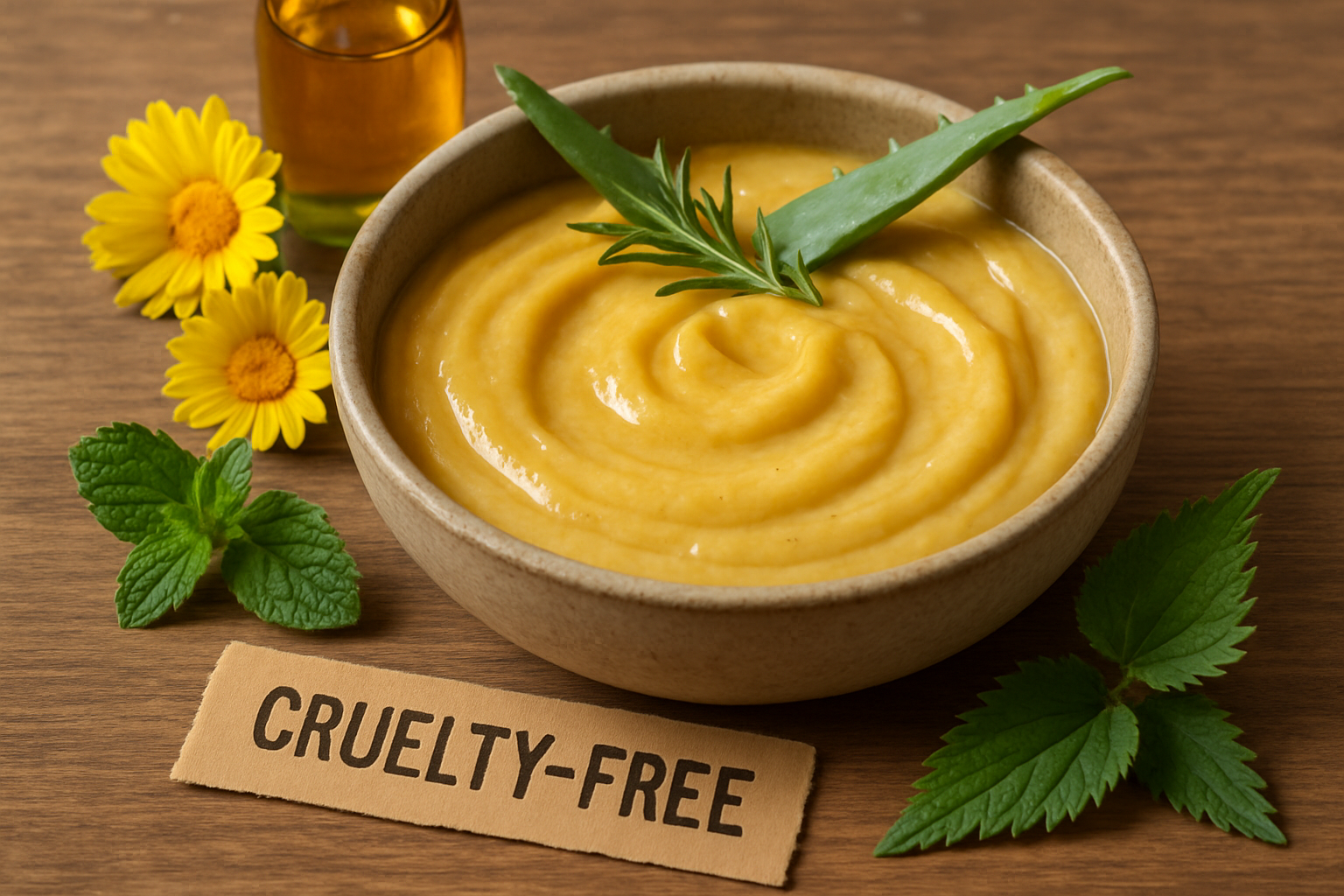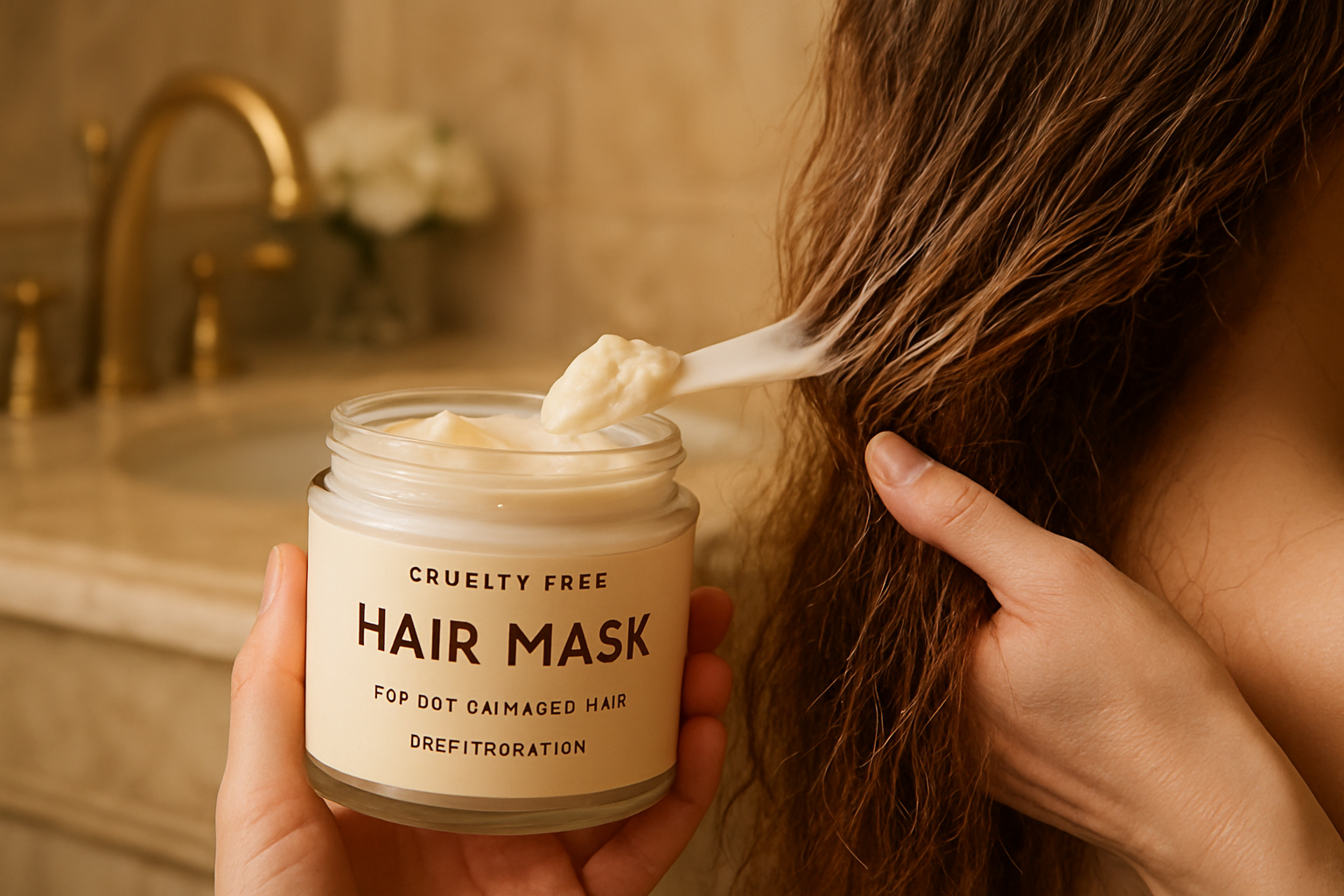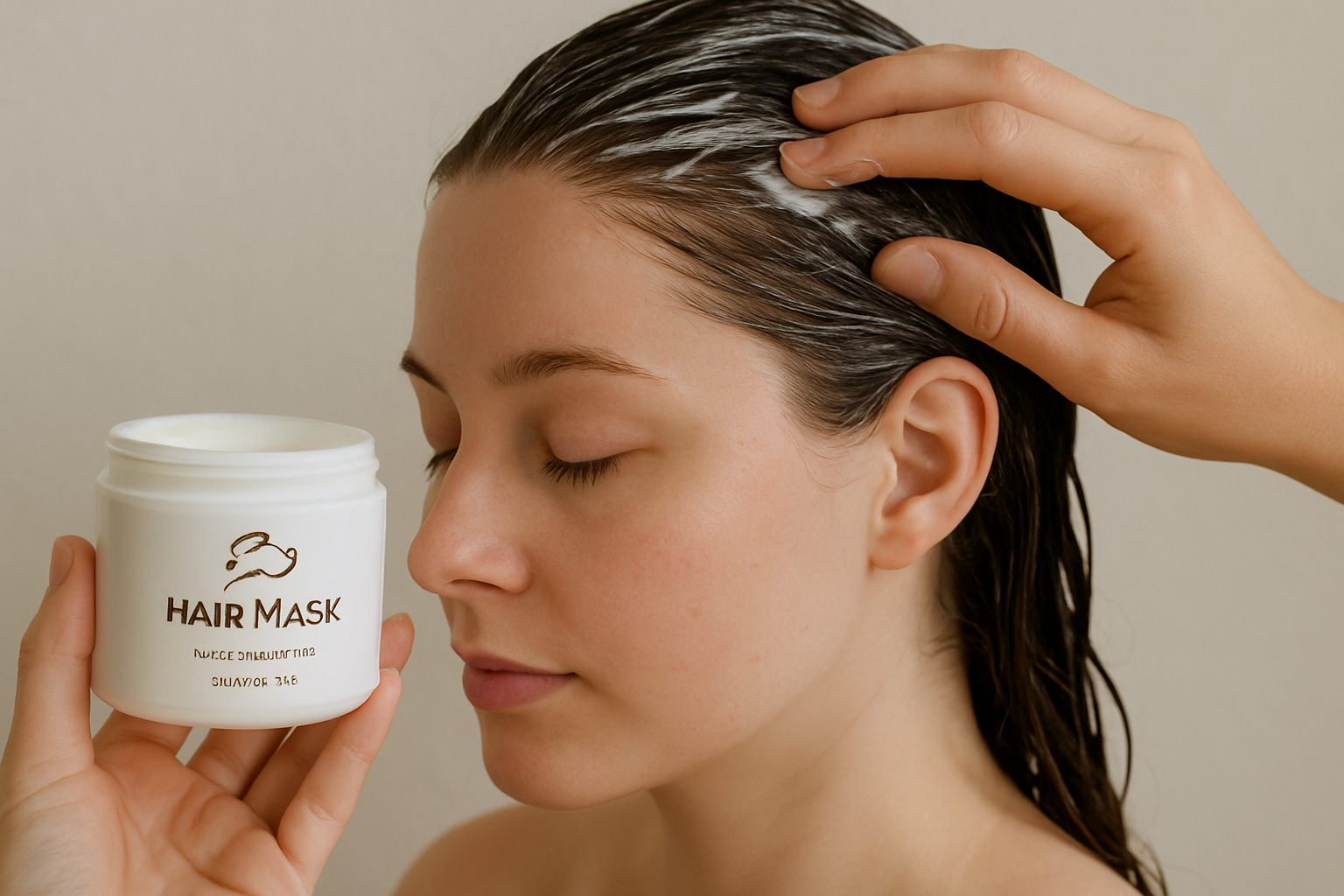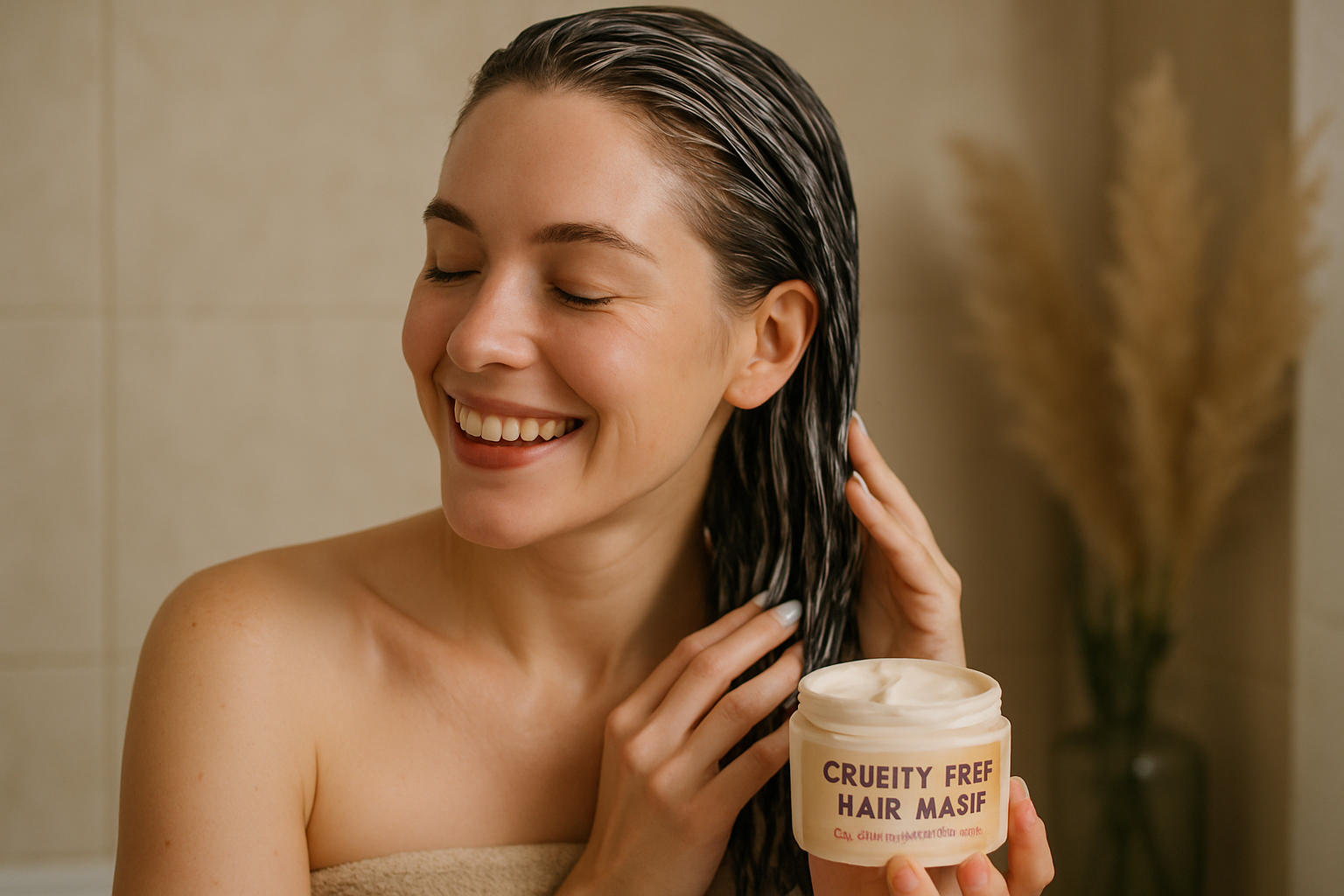
Nurturing Dry Damaged Hair: The Best Cruelty-Free Hair Masks for Deep Repair
Share
It's widely known that dry, damaged hair needs more than just regular washes to recover.
But what exactly makes a hair mask stand out—especially one that's cruelty-free?
Here’s a detailed, science-backed listicle to guide you through the best cruelty-free hair masks for dry damaged hair.
Some are deeply hydrating, locking in moisture precisely where it's needed.
Some are packed with organic plant-based oils and botanical extracts proven to repair and smooth.
Some offer gentle, fragrance-free formulations ideal for sensitive scalps.
Some come wrapped in eco-friendly, recyclable packaging supporting sustainable beauty.
Some boast certifications like COSMOS and Leaping Bunny, ensuring true cruelty-free integrity.
Let's dive right in.
Why Does Dry Damaged Hair Benefit So Much from a Cruelty-Free Hair Mask?
Dry, damaged hair has a compromised cuticle layer, which means moisture escapes easily, and strands become prone to breakage, frizz, or split ends.
A hair mask is thicker and richer than your regular conditioner, penetrating deeply into strands to rebuild and nourish the structure.
Unlike conditioners, which are lighter and applied more frequently, hair masks are typically used weekly or bi-weekly to provide an intensive treatment.
Choosing one that is cruelty-free means that the product’s benefits come without compromising on ethical standards — no animal testing or harmful ingredients involved.
Many cruelty-free masks are also vegan and organic, which means they contain naturally derived ingredients like botanical oils and extracts that restore hair health gently and sustainably.
This thoughtful approach supports both your hair and the planet.
One excellent example is Juice Organics’ Repairing Hair Mask, praised for its moisturising coconut-based formula that soothes frizz and tangles without harsh chemicals or allergens. This mask is also officially cruelty-free, supporting ethical beauty routines (source).

How to Choose the Best Cruelty-Free Hair Mask for Dry Damaged Hair?
Choosing a mask is more than just picking a pretty jar. There are key factors to consider:
- Ingredient Transparency: Opt for brands that clearly list organic, natural, and scientifically proven ingredients such as ectoin, urea, ceramides, or plant peptides. These can restore moisture and seal the cuticles.
- Certifications: Look for COSMOS or ECOCERT certifications, which guarantee organic and cruelty-free practices. The National Psoriasis Foundation Seal also endorses products safe for sensitive skin (source).
- Formulation Focus: Fragrance-free or lightly scented options work best for sensitive scalps. Avoid sulfates, parabens, silicones, and other irritants that might worsen damage.
- Brand Ethics: Confirm that the brand aligns with vegan and cruelty-free principles, avoiding animal testing in all production phases.
- Customer Reviews: Genuine testimonials often reveal how masks perform on dry, chemically treated, or frizzy hair types.
One helpful tip: If your hair is prone to frizz and tangling, look for a mask with natural oils like jojoba, avocado, or coconut—these work as superior carriers delivering benefits deep into hair strands (source).
Top 5 Cruelty-Free Hair Masks for Dry Damaged Hair
We've curated a list of excellent cruelty-free hair masks considering effectiveness, ingredient quality, and ethical certifications.
1. Juice Organics Repairing Hair Mask
This mask earns high praise for restoring moisture to heavily damaged, chemically processed hair. Its rich but lightweight formula contains organic coconut oil and repairing botanical extracts that combat frizz and improve manageability. Users report a smooth, soft finish without leaving residue.
Its subtle coconut scent is great for sensitive noses, and it boasts EcoCert COSMOS Natural certification along with cruelty-free status (source).
2. Briogeo Don’t Despair, Repair! Deep Conditioning Mask
This mask targets dry and damaged hair with a potent blend of rosehip oil, algae extract, and B vitamins to boost hydration and strength. It’s 100% vegan, cruelty-free, and free from silicones and sulfates, fitting perfectly into an ethical haircare routine.
It's dermatologist-tested and delivers noticeable softness and shine with consistent use (source).
3. Green People Organic Hair Nourishment Mask
Made with an exquisite blend of organic jojoba, avocado oils, and essential oils designed to nourish dry hair and soothe the scalp. The natural oils help repair the hair cuticle and boost scalp health, which is crucial for overall hair vitality.
This product is vegan, certified organic, cruelty-free, and free from synthetic fragrances, ideal for sensitive users (source).
4. AxisBiotix Microbiome-Friendly Hair Mask
Bringing a fresh microbiome-focused approach, this mask supports scalp and hair health by balancing microbial flora and reducing inflammation. It uses natural prebiotics and peptides to hydrate and strengthen dry, brittle strands, making it perfect for those with sensitivity or scalp conditions.
Clinically tested and cruelty-free, it reconnects inner scalp health with hair resilience (source).
5. SheaMoisture Raw Shea Butter Moisture Retention Mask
Rich in shea butter, argan oil, and sea kelp, this mask provides intense hydration while replenishing damaged strands. It’s celebrated for taming frizz and protecting hair from environmental aggressors. The brand follows strict cruelty-free practices and offers a deeply nourishing product perfect for eco-conscious consumers.

How Often Should You Use a Cruelty-Free Hair Mask?
While typical conditioners are used every wash day, hair masks work best as a weekly or bi-weekly targeted treatment.
For very dry, chemically treated hair, once a week is generally recommended. Overusing a heavy mask can weigh hair down or cause build-up.
Experts like dermatologists compare conditioner vs. hair mask like gel moisturizer vs. cream moisturizer—the hair mask is thicker and more restorative. This means less frequent but deeper nourishment .
Between treatments, maintain moisture balance with a gentle cruelty-free conditioner or leave-in product if needed.
Quick Tip: Try incorporating a scalp massage with essential oil blends diluted in carrier oils like jojoba or almond before your hair mask to boost circulation and absorption.
Can Cruelty-Free Hair Masks Help Sensitive Scalps?
Absolutely. Many cruelty-free hair masks are formulated without irritants such as synthetic fragrances, sulfates, and parabens, which are common scalp irritants.
Ingredients like allantoin, urea, and fermented peptides support soothing the skin barrier and calming inflammation, making the masks appropriate even for those with scalp sensitivities or psoriasis (source).
Scent-free or naturally scented options reduce risk of reactions, and using a gentle hair mask helps maintain a hydrated, balanced scalp, which in turn promotes stronger hair growth.

What Ingredients Should You Look For in a Cruelty-Free Hair Mask for Dry Damaged Hair?
Great masks feature a balance of emollients, humectants, and proteins to rebuild and moisturize hair. Here are standout ingredients:
- Plant-Based Oils: Coconut, jojoba, argan, avocado, and olive oils are prized for penetrating hair shafts and locking in moisture without heaviness.
- Hydrating Humectants: Glycerin and hyaluronic acid attract and hold water in hair fibers, improving elasticity.
- Proteins & Peptides: Hydrolysed keratin, ceramides, and ferment peptide complexes strengthen the hair by mimicking natural components, reducing breakage.
- Soothing Actives: Allantoin, ectoin, and oat extract calm inflammation and protect the scalp barrier.
- Botanical Extracts: Calendula, hibiscus, and milk thistle encourage scalp health, balance oil production, and enhance hair vitality.
Steer clear of harsh sulfates, parabens, synthetic fragrances, silicones that weigh hair down, and ingredients tested on animals.
How Do Sustainable Packaging and Ethical Values Impact Cruelty-Free Hair Masks?
Buying a cruelty-free hair mask is not just about avoiding animal testing; it also reflects an ethical lifestyle choice that values sustainability.
Many brands now use recyclable jars, biodegradable seals, and refill options to reduce plastic waste.
Choosing products certified by trustworthy organisations like COSMOS means the ingredients and manufacturing processes align with organic, sustainable, and ethical standards.
Supporting these brands encourages a cleaner, kinder beauty industry—benefiting the entire community.
Real Customer Experiences Using Cruelty-Free Hair Masks
Customer stories often highlight noticeable differences from using cruelty-free hair masks:
- "After years of bleaching, my hair was dry and brittle. The Juice Organics mask gave me softness and manageability I hadn’t felt in ages." — Verified buyer
- "I suffer from scalp sensitivity and eczema. Finding a fragrance-free, cruelty-free mask that calmed irritation without causing buildup has been game-changing. My hair feels fuller now." — Organic beauty enthusiast
- "The Briogeo mask’s blend of natural oils helped repair split ends and tame my frizz. Plus, I love supporting their cruelty-free ethics." — Long-term user
These anecdotes underscore how quality, ethics, and proper ingredients combine to truly nurture dry damaged hair.
Simple Steps to Maximise Your Hair Mask’s Benefits
Applying a hair mask correctly can make all the difference:
- Start with freshly washed hair: Use a gentle, sulfate-free shampoo to avoid stripping natural oils.
- Warm the mask slightly: Some oils, like coconut, soften with warmth, improving penetration.
- Apply evenly from roots to ends: Use fingers or a wide-tooth comb to distribute the mask thoroughly.
- Massage your scalp gently: This encourages circulation and absorption.
- Leave on for 5–15 minutes: Follow product guidelines but consider longer for intensive repair.
- Rinse with cool water: This seals cuticles and locks in moisture.
- Use once a week: Don't overdo it—let your hair breathe between treatments.
Remember, pairing your mask with a supportive routine—like incorporating a vegan face cream or gentle serum—fully embraces a thoughtful self-care experience. Learn more about compassionate skincare in this guide.
Frequently Asked Questions About Cruelty-Free Hair Masks
What is the difference between a hair conditioner and a hair mask?
A conditioner is lighter, like a gel moisturizer, applied after every wash to smooth hair. A hair mask is thicker and creamier, designed for less frequent but deeper treatment to repair and hydrate intensely (source video).
Are cruelty-free hair masks suitable for all hair types?
Yes, but choosing the right formula is key. For dry, damaged hair, look for rich, hydrating ingredients. Fine hair might benefit more from lighter vegan masks with natural oils that don't weigh down strands.
Can hair masks cause scalp sensitivity?
If formulated without irritants and synthetic fragrances, cruelty-free masks usually soothe rather than irritate sensitive scalps. Always patch-test new products.
How long should I leave a hair mask in?
Most recommend 5–15 minutes, but intensive treatments can be left longer occasionally. Follow product instructions specifically.
What’s Your Next Step?
Tell us in the comments: How will you apply this to your hair care routine? For personalized advice, contact us!

